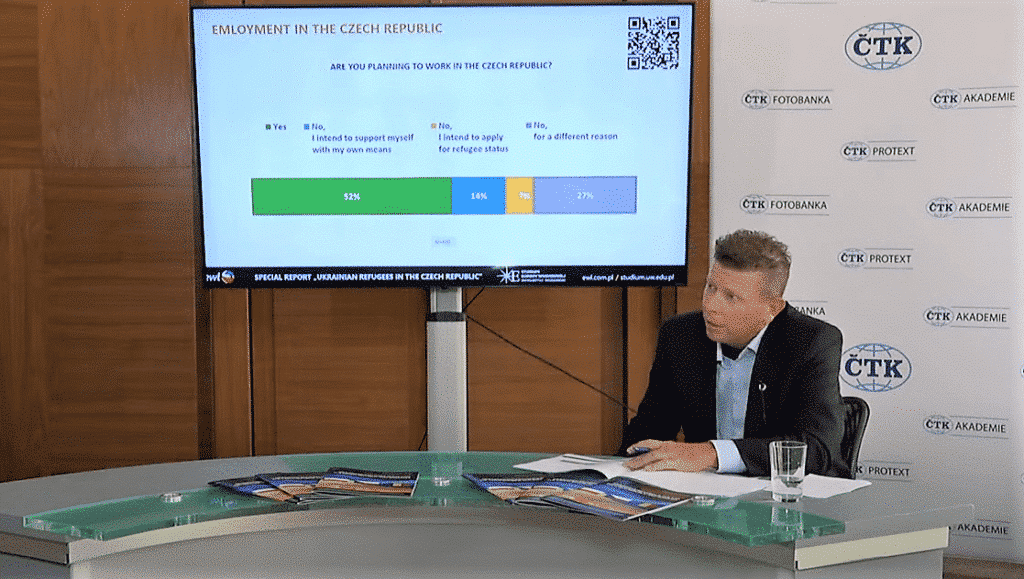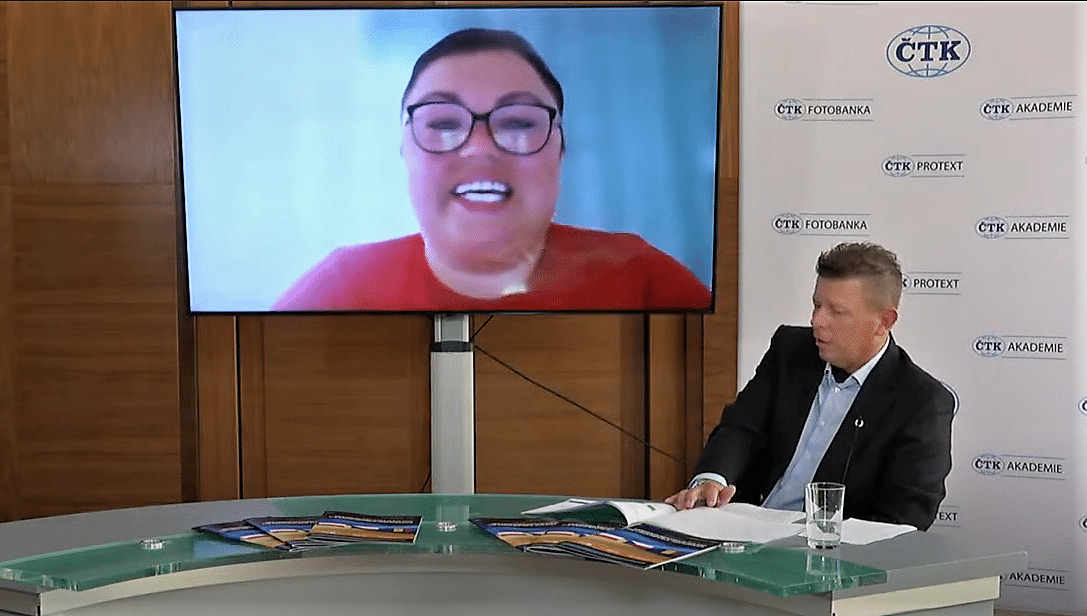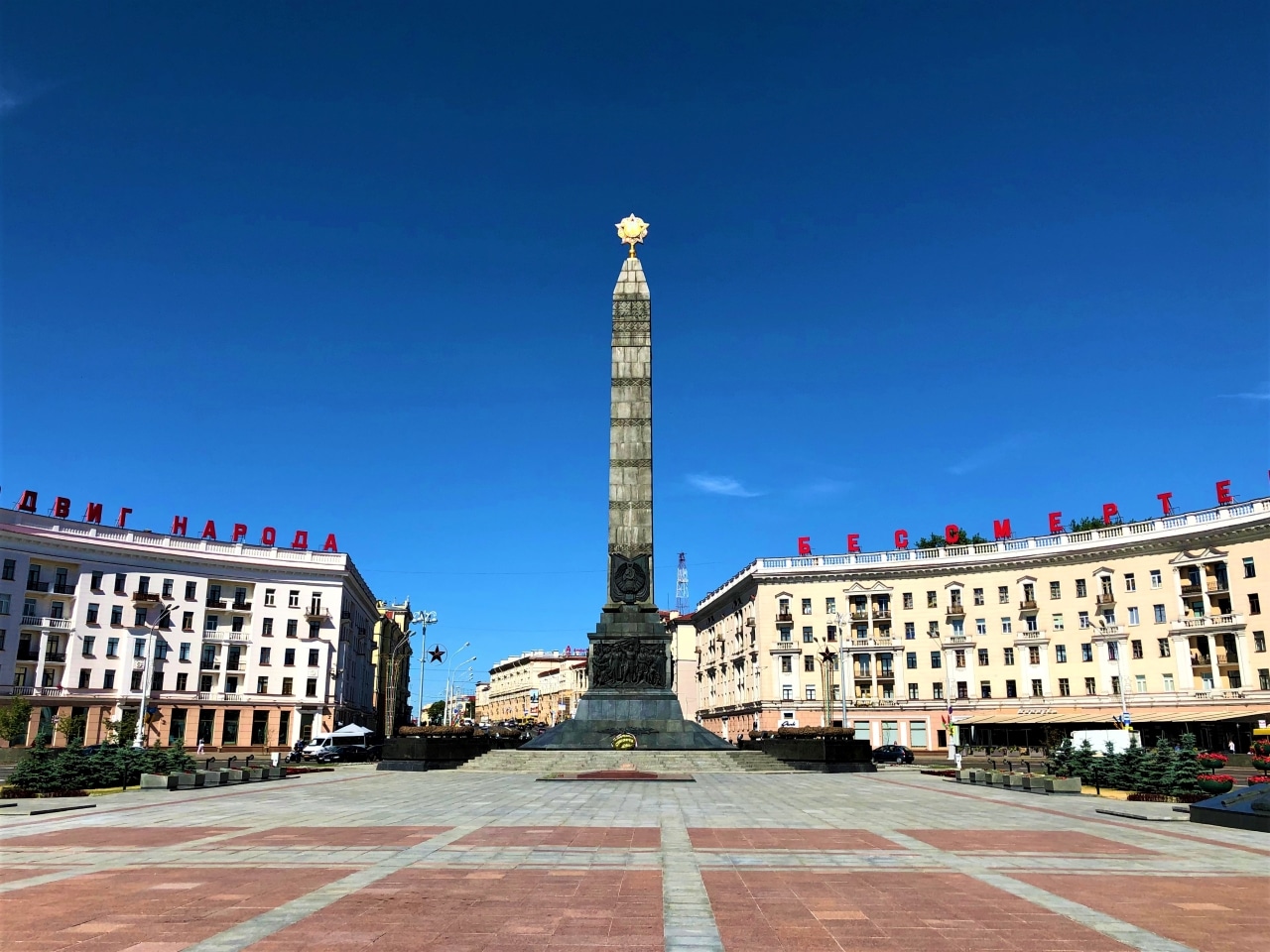The vast majority of Ukrainian refugees residing in the Czech Republic have a university degree and more than half intend to take up employment in the country, according to the study ‘Ukrainian refugees in the Czech Republic’ prepared by the EWL Migration Platform and the Centre for East European Studies at the University of Warsaw. The results of the study were presented at the Czech News Agency on June 22 by experts of the EWL Migration Platform – Michalina Sielewicz and Radek Vlk.
Almost two thirds of the refugees who crossed the Czech border after 24 February 2022 have a university degree and represent professions considered in short supply in the Czech Republic. Most are highly qualified specialists (22%), service sector workers (13%), manual workers and technicians (11%), teachers and education sector employees (9%).
The authors of the study noted that as many as 52% of the refugees from Ukraine intend to take up paid employment during their stay in the Czech Republic. Only 14% of the respondents declare their intention to support themselves with their own financial means. Only 7% are planning to apply for refugee status in the country.

Most refugees (56%) want to return to Ukraine after the war is over. Almost one in four (24%) says they want to stay in the Czech Republic for longer. In turn, 20% of the respondents intend to emigrate further. Most often they point to such destinations as Germany (31%), Slovakia (19%) and Austria (11%). The study showed that as many as 52% of Ukrainian refugees staying in the Czech Republic declare their knowledge of English at a communicative level, and of Czech – 24%.
‘Changes introduced in the EU regulations on cross-border mobility in connection with the Russian invasion of Ukraine have changed the nature of migration of Ukrainian citizens to the Czech Republic. Before the start of the war, employment of Ukrainian citizens was of a short-term nature, determined by the period of validity of visas. Today, the period of employment of citizens of this country has increased from 180 days to at least one year’, emphasises Michalina Sielewicz, International Business Development Director of the EWL Migration Platform.
The EWL expert states that before the war almost 200 thousand Ukrainian citizens worked in the Czech Republic. And after 24 February 2022, more than 50 thousand Ukrainian refugees, i.e., about one third of the adult refugee population, have already taken up work in the Czech Republic.
‘This issue remains important from the point of view of Ukrainian citizens, who can take up employment and establish lasting relations with the Czech society in an attempt to wait out the war. It also represents an opportunity to strengthen the Czech economy after the COVID-19 pandemic, which is marked by a clearly widening gap in the labour market, despite the country having the lowest unemployment rate in the European Union’, adds Radek Vlk, General Manager, EWL Czech.
The study shows that the vast majority of refugees (as many as 94.5%) are women, among whom more than half are mothers with children under the age of 18. The authors of the report emphasize that providing support in the field of psychological care and developing friendly solutions on the labour market is one of the biggest challenges of giving aid.
The special report was created after analysing the results of the sociological study ‘Ukrainian refugees in the Czech Republic’, which was conducted from 13 May to 23 May 2022 by the EWL Migration Platform and the Centre for East European Studies at the University of Warsaw in Prague, Ostrava and Bohumín. 400 Ukrainian citizens were surveyed who decided to come to the Czech Republic after 24 February 2022 because of Russia’s aggression against Ukraine.





